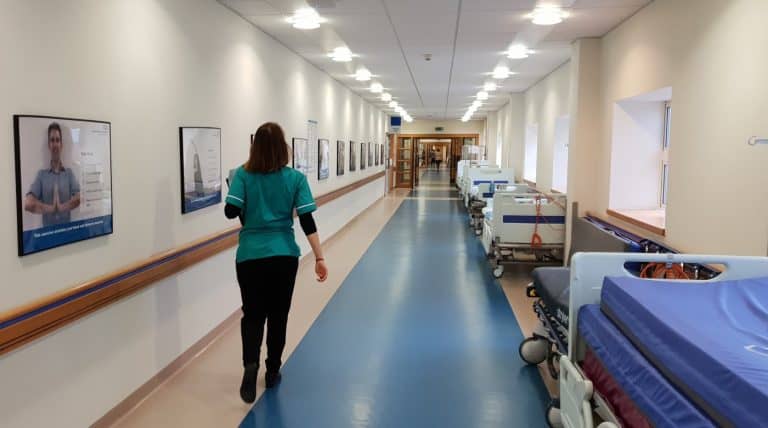
Birth Trauma Inquiry report – my thoughts on the changes proposed to end poor care
An inquiry into traumatic births has called for sweeping changes to the UK’s maternity and postnatal care services.
Hundreds of women told harrowing stories of their birth trauma to the All-Party Parliamentary Group for Birth Trauma, concluding in a report out today, May 13 2024.
Led by Conservative MP Theo Clarke, the report said the UK has a maternity system “where poor care is all-too-frequently tolerated as normal, and women are treated as an inconvenience”.
The report makes a number of significant recommendations to overhaul the maternity system in the NHS.
If made, these changes could make a huge difference in improving the experiences of women nationwide during their maternity care.
The Inquiry
The report follows an inquiry which took place during the first half of this year. Written responses were received from 1,300 women and families who have experienced birth trauma, as well as experts including midwifes and obstetricians.
Evidence given to the committee included accounts of stillbirth, premature birth, babies born with cerebral palsy caused by oxygen deprivation, and life-changing injuries to women as the result of severe tearing.
“In many of these cases, the trauma was caused by mistakes and failures made before and during labour,” the report says.
It adds: “Frequently, these errors were covered up by hospitals who frustrated parents’ efforts to find answers.”
The inquiry had a serious of meetings or sessions, where evidence was heard from clinical experts and women who had suffered birth trauma. A number of charities have been heavily involved in providing evidence, including MASIC (mothers with anal sphincter injuries during childbirth), who we proudly support.
Key findings
The report published this morning makes substantial recommendations for the Government to implement to change the maternity medical system within the NHS.
The key recommendations are:
- Recruit, train and retain more obstetricians and midwives to ensure safe levels of staffing in maternity services and provide mandatory training on trauma informed care;
- Provide universal access to specialist maternal mental health services across the UK to end the postcode lottery;
- Offer a separate six week check post-delivery with a GP for all mothers which includes separate questions for the mother’s physical and mental health to the baby;
- Rollout and implement the OASI (obstetric and anal sphincter injury) care bundle to all hospital trusts – underpinned by sufficient training – to reduce risk of injuries in childbirth;
- Oversee the national rollout of the standardised post birth services, such as Birth Reflection, to give all mothers a safe space to speak about their experiences in childbirth;
- Ensure education for women on birth choices. All NHS trusts should offer antenatal classes. Risks should be discussed during both antenatal classes and at the 34 week antenatal check with a midwife to ensure informed consent;
- Respect the mother’s choice about giving birth, their access to pain relief and keep mothers together with their baby as much as possible;
- Provide support for fathers and ensure nominated birth partner is continuously informed and updated during labour and post-delivery;
- Provide better continuity of care and digitise mother’s health records to improve communication between primary and secondary health care pathways. This should include the integration of different IT systems to ensure notes are always shared;
- Extend the time limit for medical negligence litigation relating to childbirth from three years to five years;
- Commit to tackle the inequality in maternal medical health in ethnic minorities. NHS to provide funding to each NHS trust to maintain a pool of appropriately trained interpreters with expertise in maternity and to train NHS staff to work with interpreters;
- NIHR (National Institute for Health and Care Research) to commission research on the economic impact of birth trauma and injury including factors such as women delaying return to work.
My thoughts on the birth trauma inquiry recommendations
This thorough report shows birth trauma matters and the Government is taking these very important issues seriously.
Sadly the responses from the women as part of the inquiry reflect what I hear from the women I represent. Almost all of my clients tell me they feel they are not listened to during their birth or afterwards. They feel their experiences are dismissed by the medical professionals treating them. The report recognises this as a serious problem and it underpins all of the recommendations above.
Another common theme I hear from clients is they do not have the information to understand what their options are during childbirth. This leaves them with a feeling of the medical care happening to them, without their input and leaves women feeling they haven’t had any control. This issue goes to the heart of consent and women’s decision-making about their own bodies.
The report addresses these problems and recommends more investment in education and antenatal classes for all women nationwide so women can be aware of what might happen. This will allow women to feel more prepared for childbirth, and be able to be make informed decisions about their care. They will also be given more information about what is and isn’t normal after birth so they can seek the right support.
Importantly one of the key recommendations I am glad to see is investment in the mandatory nationwide implementation of the OASI bundle with appropriate training. Unfortunately for too many women, the severity of obstetric tears sustained during birth are not recognised at the time. I have represented clients who have been sent home following birth with significant tears which haven’t been recognised or repaired. These women are left to fend for themselves and often told that the incontinence and pain they are experiencing is normal.
They end up returning to A&E days or weeks later when they can’t cope with their injuries anymore. Unfortunately, by this time, the immediate repairs can’t be done, and more extensive and invasive treatments are needed.
The OASI care bundle aims to enhance training of clinicians and midwives so injuries are recognised and repaired immediately at the time.
Lastly, I am very pleased to see the inquiry has recognised the usual three-year limitation period in which individuals need to begin a legal claim is not appropriate for women suffering with birth trauma.
For many women, their physical and mental injuries make it impossible for them to deal with a legal claim as well during their initial period of recovery. The inquiry has recommended an extension to this time limit to allow women five years in which to begin a legal claim.
The report recommendations are significant and I applaud Theo Clarke and everyone who has taken part in the preparation of this. I am glad to see the recommendations are broken down into bitesize suggestions which can be actioned.
I hope the Government considers these recommendations with the serious attention they need and they are implemented as quickly as possible to help the most amount of women.










